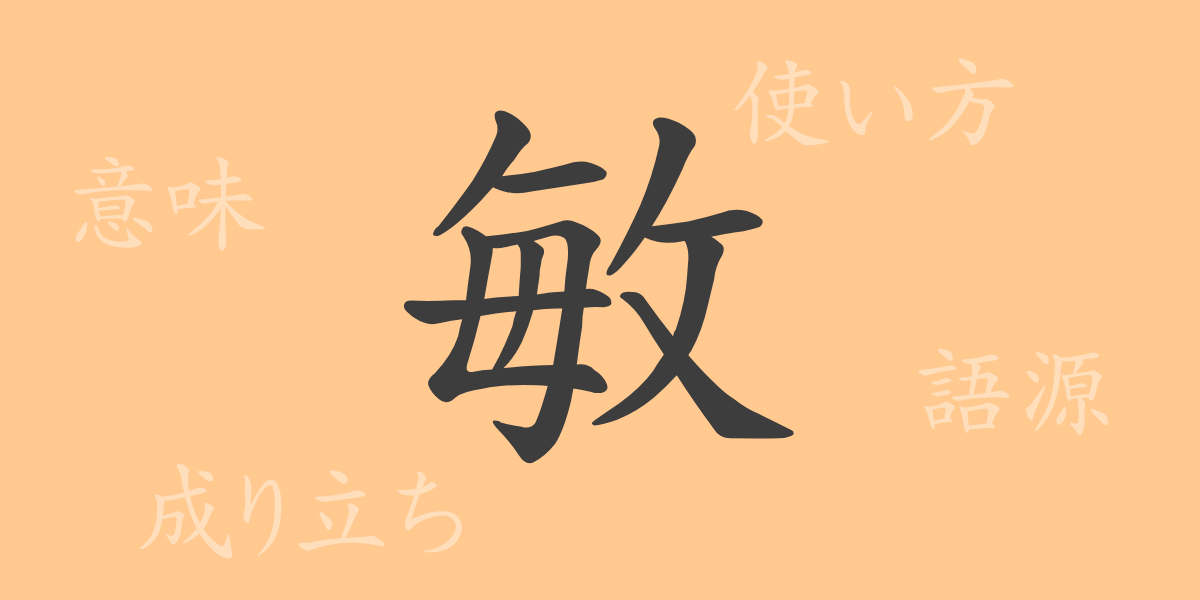“`html
Each character has a rich history behind its formation. The commonly used kanji (漢字) “敏” (bin) in Japan is no exception. In this article, we delve into the origins of the kanji “敏” (bin), its modern usage, and even the idioms and phrases that incorporate it. For those seeking a deep understanding of the Japanese language, let’s explore the layers of meaning that “敏” (bin) holds together.
Origins of 敏 (bin)
The kanji “敏” (bin) is derived from ancient Chinese pictographs, as its form suggests. Originally, it combined the radical “忄” (risshinben), which represents the heart, with “彑” (keigamae), depicting the rapid movement of the heart. Over time, it came to signify quick actions or thoughts, as seen in the word “敏捷” (binshou), meaning agility.
Meaning and Usage of 敏 (bin)
The kanji “敏” (bin) carries meanings such as “quick,” “agile,” and “sharp.” These all refer to quick responses or keen senses and are commonly used in daily life in terms like “敏感” (binkan) or “敏速” (binsoku). Additionally, it can describe a person’s traits, as in “He is a sensitive person” or “She is a skilled businesswoman.”
Reading, Stroke Count, and Radical of 敏 (bin)
How is the kanji “敏” (bin) read in Japanese, and what is its structure? Let’s take a closer look.
- Reading: On’yomi (音読み) is “ビン” (bin); there is no Kun’yomi (訓読み).
- Stroke Count: 10 strokes in total.
- Radical: 忄 (risshinben).
Idioms, Phrases, and Proverbs Using 敏 (bin)
There are many idioms, phrases, and proverbs that include “敏” (bin). Here, we highlight a few and explore their meanings.
- 敏感 (binkan): Having a keen ability to sense.
- 敏速 (binsoku): Very fast in action or processing.
- 敏腕 (binwan): Skilled and efficient at work.
- 機敏 (kibin): Quick and agile in actions or thoughts.
- 鋭敏 (eibin): Sharp and sensitive.
Summary on 敏 (bin)
The kanji “敏” (bin) symbolizes quickness and sharpness, and has been used in various contexts from ancient times to the present. Understanding its readings, meanings, and the idioms and phrases it appears in makes “敏” (bin) a fascinating character for learners of the Japanese language. Mastering the kanji “敏” (bin) enriches your language nuances and enables deeper communication, from everyday conversations to business settings.
“`

























